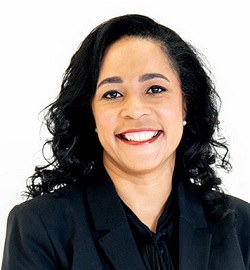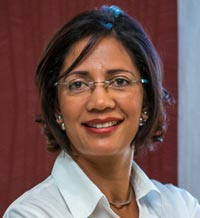
Vigilance defeats fraud

By Jacquiline Pack
Bank Windhoek’s Executive Officer of Marketing and Corporate Communication Services.
Bank Windhoek would like to remind the public to be vigilant this Festive Season as fraudsters are very active during this period. The following are a few fraudulent methods used by impostors and how customers can bank safely:
Card fraud is one of the most common scams committed during the Festive Season. It happens when a fraudster obtains a customer’s banking Personal Identity Number (PIN) or the information on their cards to access the funds in the customer’s account. The move to replace the magnetic strip with an electronic chip eliminated the possibility of card cloning. However, there are still cards with both the chip and magnetic stripe, which are still vulnerable to card fraud.
Online scam remains high-risk. It is relatively easy to commit. The fraudster only needs the debit or credit card number, the card expiry date, and the three-digit Card Verification Number (CVV) printed on the back of the card to do online shopping.
Vishing is described as using the telephone to scam the user into surrendering private information that a scammer will use for identity theft. The fraudster will pretend to be a bank official and require the customer to give passwords and bank account details to access their accounts.
Like phishing, smishing is a message sent with an urgent tone to the user to take action. The user is asked to provide private information such as passwords or credit card information to take action.
Social media fraud committed on Facebook and WhatsApp; this deception is increasing. Goods are advertised, and without any further verification, consumers transfer funds through cash transfer services. Once the fraudulent business receives the funds, the money is immediately withdrawn at an Automatic Teller Machine (ATM). The consumer cannot trace the seller because all posts and profiles related to the sale are deleted, and phones are not answered.
How to bank safely
There are several ways that customers can protect themselves from fraudsters. To bank safely, customers should have a better awareness and understanding of the Bank’s products and services technology.
Bank safely by subscribing to the bank’s transaction notification service, such as Bank Windhoek’s SMS AlertMe service notification. This service is free of charge. It notifies customers of transactions on their accounts, whether debit or credit transactions using Bank Windhoek debit and credit cards or login and payments made on the Internet Banking (iBank) platform.
Bank customers are requested to never respond to an email, instant message, or phone call asking them for their banking details, such as their PIN. Banking customers must never share their PIN with anyone, not even a bank official, family members, and friends. The following hints and tips are also helpful:
• It is crucial to protect the banking cards and have them in sight when transacting at all times. Remember, no business or service provider should ever make photocopies or take photos of a customer’s banking card.
• When transacting at an Automatic Teller Machine (ATM), customers should not accept assistance from anyone, including the security guards at the ATMs.
• Customers should access the online banking website by only going through the bank’s main website, rather than clicking on links received in an email, an instant message, or another website. If a customer gets a link in an email or SMS, they should not click on it but delete the message.
• Customers should report suspicious transactions to their bank.
Vigilance for fraudster tricks and scams remains one of our most robust defences to curb theft and fraud. For more information, contact Bank Windhoek’s Customer Contact Centre on 061 299 1200.












































